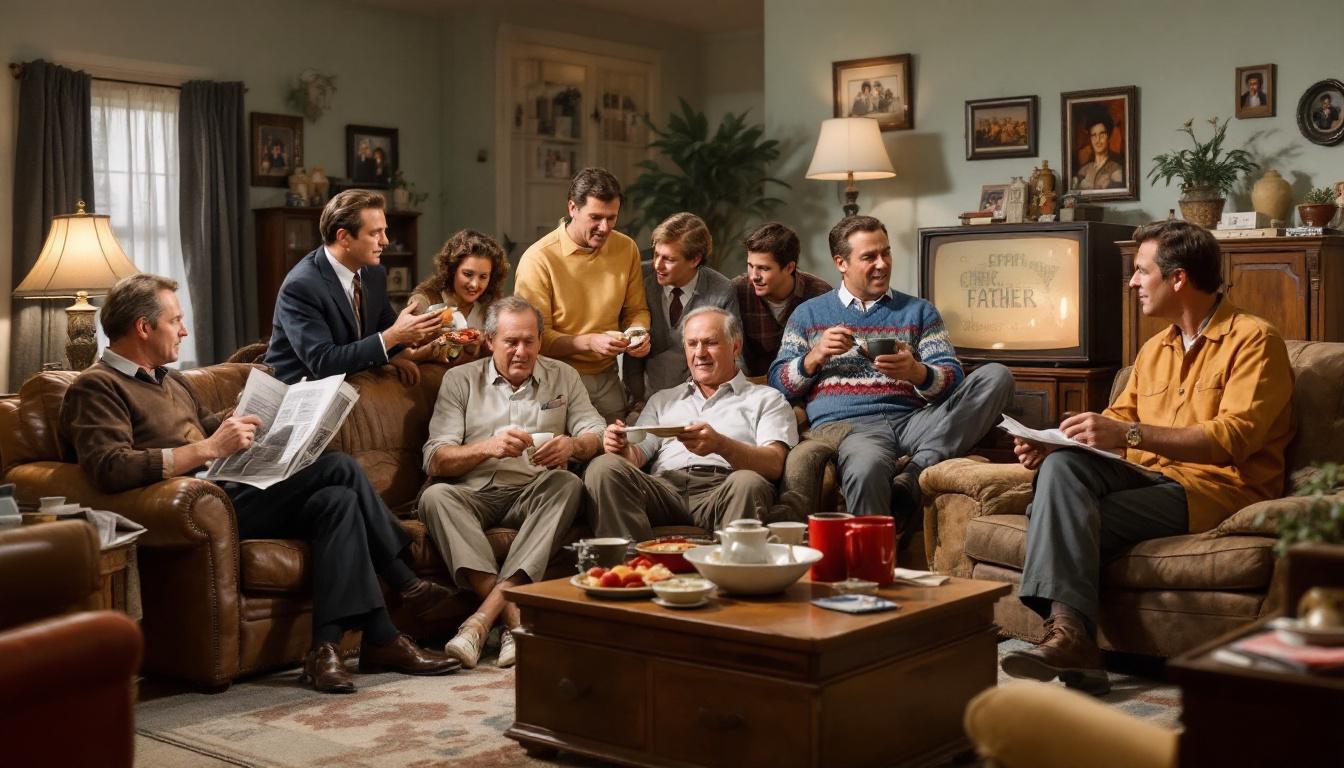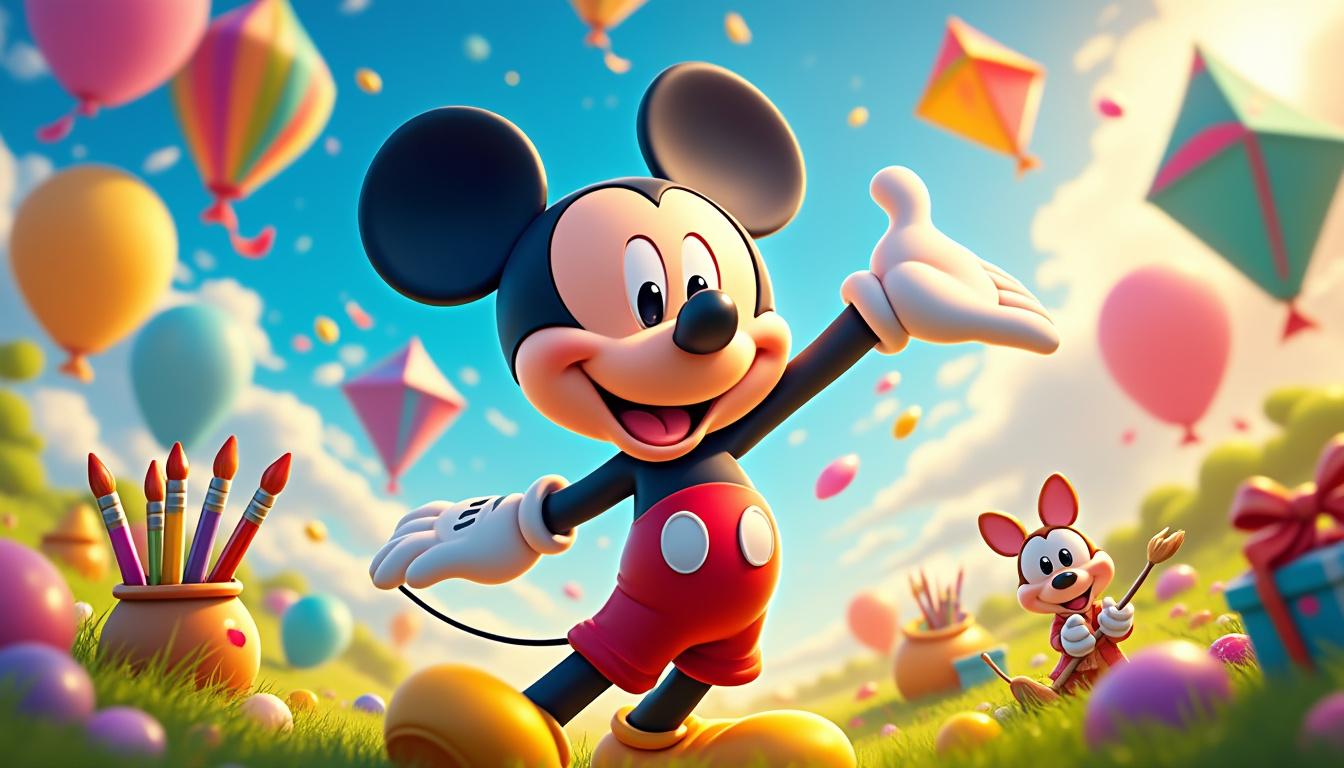Have you ever watched a TV series and recognized a fictional father whose behaviors and mannerisms seem so familiar that you can’t help but think: “That’s me!” or “That’s my father!”?
Characters like Cameron Tucker in Modern Family or Frank Gallagher in Shameless can strike a chord with us.
In honor of Father’s Day, let’s explore how these famous fathers correspond to the 16 MBTI personality types.
Discovering which personality type matches your father or even yourself can be a fascinating and enlightening experience. Through this analysis, we can better understand the strengths and challenges each type faces in their role as a father. Whether your father is the authoritarian leader or the nurturing mentor, each type makes a unique contribution to family dynamics. Let’s dive into this inspiring exploration of fathers on television through the lens of MBTI personalities.
ENTP – Phil Dunphy (Modern Family) A fun and playful father who always has a witty comeback ready, Phil Dunphy from Modern Family perfectly illustrates ENTP traits. He is creative and unafraid to jump into new uncertain situations, handling them as they come (even when they embarrass his kids). With an ENTP as a father, there’s never a dull moment — even a simple trip to the grocery store can become an adventure. “I’m the cool dad, that’s my thing,” says Phil, which isn’t really true, but his awkward attempts to be hip are so endearing.
ENTJ – Coach Taylor (Friday Night Lights)
The ENTJ personality type is synonymous with leadership and doesn’t take off its coaching hat even at home. Authoritative and calm under pressure, Coach Taylor from Friday Night Lights perfectly embodies these qualities. Although not a biological father, he pushes people to bring out the best in themselves and instills values of determination and hard work. ENTJ fathers provide encouragement, set high expectations, and believe in tough love. They also support their children through life’s challenges.
INTJ – Dr. Frasier Crane (Frasier)
Although he is not a father, Frasier Crane is a classic example of an INTJ father figure: logical, strategic, and dedicated. Not the cuddly type, he is the father who suggests “The Art of War” as a bedtime story, despite his children’s eye rolls. INTJs excel in problem-solving, and their children turn to them for answers to life’s big questions (or for reality checks). Sometimes this can veer into “man-splaining,” but like Frasier, the INTJ father argues that he’s just trying to help.
INTP – Ross Geller (Friends)
Ross from Friends is a typical INTP father: quirky and original, he connects with his son Ben by teaching him facts about dinosaurs and sings “Baby Got Back” by Sir Mix-a-Lot to make his daughter Emma laugh. His goofy and endearing parenting attempts charm us, just like his super-anxious way of worrying about his kids. INTPs are curious about the world and want to explore it with their children, teaching them important lessons while allowing them to develop their own ideas and interests.
INFJ – Remus Lupin (Harry Potter)
INFJ fathers visible on television are rare, which is why we turn to books and movies. Remus Lupin, the Defense Against the Dark Arts teacher in Harry Potter, is an excellent representation of this type. He embodies the deep care, strategic direction, and emotional intuition that is expected from an INFJ father, while being a pillar for his family (and his pseudo-son Harry). This father is a mentor and protector, ensuring that his children feel heard and valued while encouraging them to be the best version of themselves.
INFP – Danny Tanner (Full House)
Danny Tanner is the sweet and generous father in Full House who strives to remain optimistic in the face of life’s challenges. As an INFP, he encourages his children to openly express their feelings. The deep conversations between Danny and his children resonate with all of us. If you are an INFP father like Danny, you are the king of subtle encouragement to help your children find their way rather than imposing your will on them.
ENFJ – Uncle Phil (The Fresh Prince of Bel-Air)
An ENFJ father is invested in the growth of his children. He wants them to reach their full potential and will be their biggest supporter, much like Uncle Phil, the father figure to his nephew Will in The Fresh Prince of Bel-Air. We see this in the way Uncle Phil reminds Will of the opportunities he has so that he doesn’t waste them. ENFJs tend to have high expectations of their children and can be overly invested in their decisions, feeling personally hurt if their children go against their wishes. But their intentions are always good and come from a place of love.
ENFP – Steven Keaton (Family Ties)
Even if he can be a little disorganized sometimes, Steven is a loving and free-spirited father who lets his children develop their independence and respects their differences. This is typical of ENFPs: instead of being strict disciplinarians, they thrive by connecting emotionally with their children. ENFP fathers like Steven are often nonconformists with strong imaginative skills. They prefer to sit down and chat with their kids rather than doing all the chores. Family time first – the dirty dishes can wait!
ISTJ – Ron Swanson (Parks and Recreation)
Fathers who love traditions and norms? That’s Ron Swanson, the logical and straightforward character whose quirky humor has won us over on Parks and Recreation. Introverted, realistic, and making decisions through logic, Ron displays many ISTJ traits. Behind his gruff exterior lies someone deeply loyal to those he loves. Although he is not a biological father in the series, he becomes a father figure to other characters, like April and Leslie, offering them guidance, support, and tough love when necessary.
ISFJ – Burt Hummel (Glee)
Burt from Glee can be described as a glittering man. He displays many ISFJ traits, from his practical way of doing things to his strong sense of responsibility. ISFJ fathers are loyal to their families and highly grounded – they help their children without seeking attention. Burt is a single father, mechanic, and football fan who struggles to understand his son’s love for music and dance. But he always supports his son’s passions, even when they don’t align with his traditional values.
ESTJ – Carl Winslow (Family Matters)
If you are the kind of father who whispers “rules are rules” when your children throw a tantrum, you might identify with Carl Winslow from Family Matters. As an ESTJ, Carl raises his children with a strong sense of responsibility, imposing rules and setting boundaries with a fair and steady hand rather than being overly strict or permissive. Whenever Steve Urkel brings chaos into his plans, Carl must enforce the law, which is typical of ESTJs’ need for order, harmony, and ritual.
ESFJ – Cameron Tucker (Modern Family)
With his big heart and entertaining personality, Cameron from Modern Family is clearly an ESFJ: he is the nurturing force of the family who always goes the extra mile to help them. He only needs a few pom-poms as he supports everyone. He can sometimes be a bit needy and unsure, often looking for validation from others, especially from his husband Mitchell, which can lead to moments of manipulation or selfishness. These traits add complexity to his character, making him endearing, sometimes frustrating, and always lovable.
ISTP – Al Bundy (Married… with Children)
Every episode of Married… with Children features Al, the father who always seems to be lounging in front of the TV. But beneath all that grumbling and self-pity (“I’m not a role model. I’m a cautionary tale!”), he genuinely cares about his family and will fiercely protect them if necessary. ISTPs find it easier to connect with their loved ones through actions rather than words. If your father is like Al, he will change your tire before talking about your bad day. And he will love you just the same.
ISFP – Tim Taylor (Home Improvement)
Tim Taylor is the sometimes goofy and advice-giving father that you can admire, especially when he uses humor to educate his children. As an ISFP, Tim can sometimes seem distant, which can lead his children to struggle to understand just how loyal and supportive he is. Peeling away his friendly and funny layers, you will find an extremely loving ISFP father. His heartfelt conversations in the garage with his sons can sometimes be deeply moving.
ESTP – Tony Micelli (Who’s the Boss?)
ESTPs are dynamic fathers: charming, friendly, and full of energy who keep the whole family entertained. Tony Micelli from Who’s the Boss? is a perfect example. A former baseball player, Tony always steps in to help the children in his life solve their problems in practical and spontaneous ways, like the typical ESTP father. His character might seem to fit the “macho” male stereotype, but Tony breaks traditional gender roles by being a stay-at-home dad while raising his daughter Samantha. He is more devoted than demanding, and his natural charm and humor make us all wish we had a father like Tony.
ESFP – Homer Simpson (The Simpsons)
There are two ways to see Homer Simpson as a father: the imperfect comic buffoon who sometimes makes bad decisions for laughs or the well-meaning and loving father who, at key moments, makes sacrifices and shows deep care for his children. ESFP fathers are all that and more. Although he may sometimes seem to prefer leaving discipline to his partners (sorry, Marge!), they will have fun with their kids because they have the energy of true giants.

Classic television fathers come in 16 distinct types, each reflecting a unique personality. For example, Phil Dunphy from Modern Family embodies the ENTP, a creative father always ready to make his family laugh with his innovative ideas. On the opposite end, Coach Taylor from Friday Night Lights represents the ENTJ, a natural leader who motivates his loved ones to give their best.
The INTJ finds its reflection in Frasier Crane, offering strategic and logical advice, while Ross Geller from Friends illustrates the INTP type, curious and passionate about his interests. INFJ fathers, like Remus Lupin from Harry Potter, are protective mentors, while Danny Tanner from Full House represents INFPs, encouraging emotional expression from their children.
ENFJ can be found in Uncle Phil from The Fresh Prince of Bel-Air, actively supporting their children’s growth, and Steven Keaton from Family Ties illustrates ENFPs, dynamic and emotionally connected. The types ISTJ, ISFJ, ESTJ, ESFJ, ISTP, ISFP, ESTP, and ESFP are also represented by iconic figures, each adding a unique dimension to television fatherhood. Which television father type resembles you the most?

The representation of fathers on television has evolved over the years, reflecting social and cultural changes. Iconic father figures in TV series provide a multitude of inspiring examples, each embodying distinct personality traits. Understanding these types of fathers can help us not only to grasp family dynamics better but also to identify our own characteristics as fathers or father figures. This article explores the 16 types of television fathers, linking them to Myers-Briggs personality types, to help you discover which type resembles you the most.
Creative and Dynamic Fathers
ENTPs like Phil Dunphy from Modern Family are creative and dynamic fathers. Always ready to try new ideas, they bring contagious energy to the family. Phil, with his humor and awkward attempts to be “cool,” perfectly illustrates this personality type. Similarly, ENFPs like Steven Keaton from Family Ties stand out for their free spirit and desire to connect emotionally with their children. These fathers foster independence and encourage their children to explore their own passions, creating a stimulating and harmonious family environment.
Leader and Strategic Fathers
ENTJs like Coach Taylor from Friday Night Lights are natural leaders. They embody determination, strategic vision, and the ability to motivate their family to achieve their goals. Their authoritative yet fair approach inspires respect and admiration. Frasier Crane, although he is not a biological father in Frasier, represents the INTJ type, offering logical and strategic guidance. These fathers are often perceived as strong authority figures, capable of managing challenges with calmness and effectiveness.
Intellectual and Analytical Fathers
INTPs like Ross Geller from Friends are intellectual and analytical fathers. They love sharing their knowledge and encourage intellectual curiosity in their children. Ross, with his love for dinosaurs and his humorous attempts to connect with his kids, well illustrates this personality type. Furthermore, INTJs and INFJs such as Remus Lupin from Harry Potter show deep emotional understanding and the ability to guide their children strategically while remaining committed to their values and beliefs.
Protective and Devoted Fathers
ISFJs like Burt Hummel from Glee and the ISTJs such as Ron Swanson from Parks and Recreation are protective and devoted fathers. They value loyalty, respect for traditions, and unconditional support for their families. Burt, as a single father, demonstrates a great ability to balance his responsibilities while supporting his son’s passions. Ron Swanson, although demanding, provides stability and structure essential to his loved ones, thus embodying the essential traits of these personality types.
Warm and Empathetic Fathers
ESFJs like Cameron Tucker from Modern Family and ENFJs like Uncle Phil from The Fresh Prince of Bel-Air are warm and empathetic fathers. They care deeply about their children’s emotional well-being and are always ready to support and encourage them. Cameron, with his big heart and constant desire to strengthen family bonds, as well as Uncle Phil, who acts as a mentor and guide, perfectly illustrate this personality type. Their ability to create a loving and supportive family environment is essential for the healthy development of their children.
Practical and Disciplined Fathers
ESTJs like Carl Winslow from Family Matters and the ISTPs like Al Bundy from Married… with Children are practical and disciplined fathers. They value order, responsibility, and structure within the family. Carl Winslow, with his balanced approach between firmness and affection, and Al Bundy, despite his disillusioned paternal appearance, show unwavering devotion to their family. These fathers teach their children the importance of rules and respect for values while being ready to intervene effectively when needed.
Sensitive and Intuitive Fathers
INFPs like Danny Tanner from Full House and ISFPs like Tim Taylor from Home Improvement are sensitive and intuitive fathers. They place great importance on emotions and family harmony, encouraging their children to express their feelings and follow their own paths. Danny Tanner, with his optimism and kindness, and Tim Taylor, with his humor and creativity to solve problems, well illustrate this personality type. Their gentle and empathetic approach creates a loving and understanding environment, conducive to their children’s personal growth.
Adventurous and Spontaneous Fathers
ESTPs like Tony Micelli from Who’s the Boss? and ESFPs like Homer Simpson from The Simpsons are adventurous and spontaneous fathers. They bring a dose of excitement and spontaneity to family life, always ready to take on new challenges and create memorable moments with their children. Tony, with his pragmatic spirit and ability to balance traditional roles, and Homer, despite his humorous flaws, show unconditional love and a willingness to please their family. These fathers encourage creativity and independence while remaining present and available for their loved ones.
Discovering Your Television Father Type
Identifying your father type through television characters can offer interesting reflections on your own parenting style. Whether you are a strategic leader, an empathetic father, or a pragmatic protector, each type presents unique strengths and aspects to develop. To deepen this reflection, you can explore how your personality influences your parenting style by reading specialized articles such as The unique unacceptable challenge for each Myers-Briggs personality type. Understanding your type can also improve compatibility in family and professional relationships, as discussed in The MBTI for evaluating leadership compatibility in B2B partnerships. Finally, imagine how each type would react in extraordinary situations by discovering What each Enneagram type would do with a time machine.
“`html
FAQ
Q: What are the 16 types of fathers presented in the article?
A: The article explores the different types of fathers in classic television by linking them to the 16 MBTI personality types, thus providing an in-depth perspective on their distinct traits and behaviors.
Q: How can I determine which type of father most corresponds to my own father?
A: By identifying your father’s personality traits and comparing them with the descriptions of the 16 types presented, you can find the type that best matches him and better understand how he interacts with and supports his family.
Q: Why are MBTI personalities used to classify fathers in television?
A: MBTI personalities provide a structured framework for analyzing and categorizing the behaviors and character traits of characters, thus enabling a better understanding and appreciation of the diversity of paternal figures represented on television.
Q: Can I see myself in a fictional father character?
A: Yes, many readers find resonance with their own family experiences by identifying with the traits and behaviors of the fictional father characters described in the article.
Q: How can this article help me better understand my father?
A: By identifying the personality type that best matches your father, you can gain a better understanding of his motivations, reactions, and communication style, thus facilitating a more harmonious relationship.
Q: Do television father characters influence our perception of fatherhood?
A: Absolutely, televised representations can shape our expectations and ideas about what being a father entails, presenting a variety of paternal styles that can inspire or challenge our own family experiences.
Q: Does the article offer advice based on the different types of fathers?
A: While the article primarily focuses on classifying classic television fathers according to MBTI types, it also provides insights that can help improve understanding and communication within family relationships.
Q: Can we apply television father types to other family contexts?
A: Yes, the typologies presented can serve as a reference for analyzing and enriching parent-child dynamics in various family contexts, offering models of behaviors and relationships to consider.
Q: How do father types influence children’s development in television shows?
A: Different types of fathers can shape behaviors, values, and aspirations of children in TV series, illustrating the potential impact of paternal figures on the personal and social development of young characters.
Q: Does the article cover fathers from different cultures and backgrounds?
A: Yes, the article examines a variety of paternal characters from different cultures and contexts, thus reflecting the diversity of paternal models and offering an inclusive perspective on fatherhood on television.












